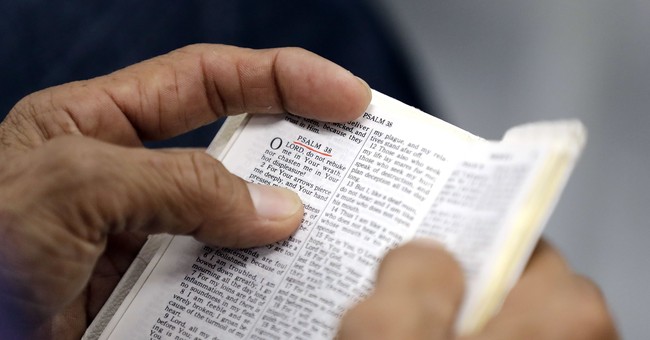Presenting the Biblical basis for free market economics, capitalism, and sound investing.
Saturday, February 22, 2020
Get God is a Capitalist free!
Saturday, February 8, 2020
What Would Jesus Say About Inequality?

Source: AP Photo/David J. Phillip
How you answer the question “What would Jesus say about inequality?” depends on how you define the “words of Jesus.” Many “scholars” limit them to no more than “Love your neighbor as yourself.” Others include only the quotations in the Gospels attributed to Jesus. Most Christians see the entire Bible as the words of Jesus because, being God, he wrote it.
Let’s start with the Gospel quotations. One passage that comes close to dealing with inequality is the parable of the Ten Talents (Matthew 25:14-30). In it, a rich man gave one servant five bags of gold, one two bags, and the third got one bag of gold to invest, “each according to his ability.” Jesus recognized that different abilities will result in different outcomes, although he is vague about the rewards they receive.
The Christian Origins Of Austrian Economics

Economics and religion overlap because both deal with people. Austrian economics is the most Christian of the schools of economics partly because its view of people, time, and money fit Christianity like a glove. This is true, although the greatest economists of the Austrian school in the 20th century -- F.A. Hayek and Ludwig von Mises -- were agnostics. Mises may have become a Christian late in life.
Another argument for the Christian origins of Austrian economics is that the school can trace its genesis back to the Godly theologians associated with the University of Salamanca, Spain, in the 16th and 17th centuries. Church fathers in the early years of Christianity had embraced the economics of Aristotle and Cicero rather than that of the Bible. Their reasons for doing so have been lost, but it may have been due to the tendency of churches suffering persecution to elect young converts from the nobility as bishops because they enjoyed political power. The sons of nobility had a high regard for the great philosophers of antiquity and tended to baptize their economics.
Subscribe to:
Posts (Atom)
